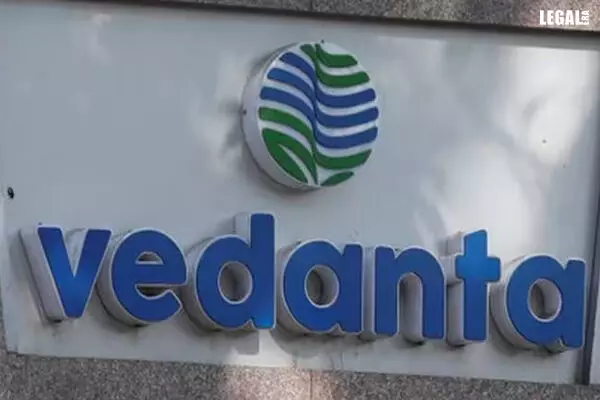- Home
- News
- Articles+
- Aerospace
- AI
- Agriculture
- Alternate Dispute Resolution
- Arbitration & Mediation
- Banking and Finance
- Bankruptcy
- Book Review
- Bribery & Corruption
- Commercial Litigation
- Competition Law
- Conference Reports
- Consumer Products
- Contract
- Corporate Governance
- Corporate Law
- Covid-19
- Cryptocurrency
- Cybersecurity
- Data Protection
- Defence
- Digital Economy
- E-commerce
- Employment Law
- Energy and Natural Resources
- Entertainment and Sports Law
- Environmental Law
- ESG
- FDI
- Food and Beverage
- Gaming
- Health Care
- IBC Diaries
- In Focus
- Inclusion & Diversity
- Insurance Law
- Intellectual Property
- International Law
- IP & Tech Era
- Know the Law
- Labour Laws
- Law & Policy and Regulation
- Litigation
- Litigation Funding
- Manufacturing
- Mergers & Acquisitions
- NFTs
- Privacy
- Private Equity
- Project Finance
- Real Estate
- Risk and Compliance
- Student Corner
- Take On Board
- Tax
- Technology Media and Telecom
- Tributes
- Viewpoint
- Zoom In
- Law Firms
- In-House
- Rankings
- E-Magazine
- Legal Era TV
- Events
- News
- Articles
- Aerospace
- AI
- Agriculture
- Alternate Dispute Resolution
- Arbitration & Mediation
- Banking and Finance
- Bankruptcy
- Book Review
- Bribery & Corruption
- Commercial Litigation
- Competition Law
- Conference Reports
- Consumer Products
- Contract
- Corporate Governance
- Corporate Law
- Covid-19
- Cryptocurrency
- Cybersecurity
- Data Protection
- Defence
- Digital Economy
- E-commerce
- Employment Law
- Energy and Natural Resources
- Entertainment and Sports Law
- Environmental Law
- ESG
- FDI
- Food and Beverage
- Gaming
- Health Care
- IBC Diaries
- In Focus
- Inclusion & Diversity
- Insurance Law
- Intellectual Property
- International Law
- IP & Tech Era
- Know the Law
- Labour Laws
- Law & Policy and Regulation
- Litigation
- Litigation Funding
- Manufacturing
- Mergers & Acquisitions
- NFTs
- Privacy
- Private Equity
- Project Finance
- Real Estate
- Risk and Compliance
- Student Corner
- Take On Board
- Tax
- Technology Media and Telecom
- Tributes
- Viewpoint
- Zoom In
- Law Firms
- In-House
- Rankings
- E-Magazine
- Legal Era TV
- Events
Vedanta’s $20 Billion Demerger Receives Backing From Proxy Advisory Firms

Vedanta’s $20 Billion Demerger Receives Backing From Proxy Advisory Firms
Vedanta’s $20 billion demerger plan, which will split the company into five sector-focused listed entities, has received support from five proxy advisory firms, including two global players. The demerger resolution will undergo electronic voting from February 13 to 17, with NCLT-mandated meetings scheduled for February 18.
Under the revised composite scheme of arrangement, the demerger will create five new entities: Vedanta Aluminium, Vedanta Oil & Gas, Vedanta Power, and Vedanta Iron & Steel. Vedanta Limited will retain businesses not covered by these sectors. The company has also confirmed that the demerger is on track to be completed by mid-2025.
The proxy advisory firms endorsing the demerger include global firms Institutional Shareholder Services (ISS) and Glass Lewis, along with India-based Institutional Investor Advisory Services (IiAS), Stakeholder Empowerment Services (SES), and InGovern Research.
The demerger will follow a simple vertical split, where shareholders will receive one share in each of the five newly listed companies for every share held in Vedanta. Stock exchanges have given their approval, and an initial creditor approval was secured last year. The company aims to complete the demerger process by July 2025.
ISS has backed the demerger, acknowledging that it will create independent, global-scale companies focused on specific verticals. Shares of Vedanta have surged 59% over the past year, outperforming the Sensex, which gained 8%.
Glass Lewis emphasized that the one-to-one share exchange ratio ensures shareholders will not face adverse economic effects from the demerger. It also supported Vedanta’s management and board in determining operational decisions.
InGovern noted that minority shareholders would see an increase in their total shareholding across the new entities, potentially enhancing their investment value. IiAS agreed that the demerger would unlock the value of the four resulting companies while maintaining shareholder interests.
SES concluded that its analysis indicates the valuation and distribution under the demerger is fair.


